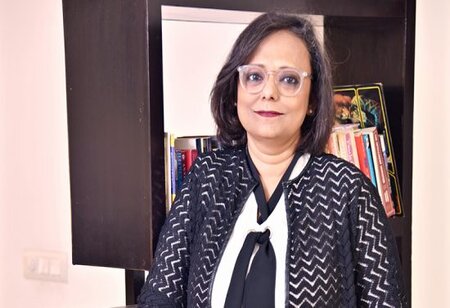Empowering educators to connect teaching and learning with end-to-end assessment
 Assessments are an integral component of teaching and learning both in hybrid and remote education models, as they are essential in evaluating student learning outcomes across diverse subjects. The importance of valuable feedback within assessments has been measured and acknowledged across learning disciplines. Science, mathematics, and engineering are no exception to the rule; high-quality feedback is a proven contributor to student success.
Assessments are an integral component of teaching and learning both in hybrid and remote education models, as they are essential in evaluating student learning outcomes across diverse subjects. The importance of valuable feedback within assessments has been measured and acknowledged across learning disciplines. Science, mathematics, and engineering are no exception to the rule; high-quality feedback is a proven contributor to student success.
A study by the University Grants Commission in India on blended mode of teaching and learning, emphasizes the need for continuous, comprehensive evaluation using innovative strategies, beyond summative evaluation methods. It mentions that further to relevant technology tools, learners should always be given corrective feedback followed by an opportunity to improve their results. Corrective feedback to learners on their work will enable them to achieve their learning outcomes more successfully.
Feedback given on both examinations and assignments facilitates learning while also reinforcing prior knowledge. Students who understand what they already know, and are aware of their learning gaps before moving forward are more likely to excel in their work. Preparation on related topics helps to build a recall factor before final, summative assessments. When students experience frequent, low-stakes formative feedback prior to standardised assessments, then we have end-to-end assessment with integrity, where learning is connected to teaching throughout a student’s educational journey.
An effective end-to-end assessment model enables educators to provide students with timely and purposeful feedback to meet learning outcomes, and build a model of progress with a better understanding of student learning. When involved in end-to-end assessment, educators and learners frequently ask themselves the following questions:
- What are we trying to do?
- How well have we done it?
- How do we know what to learn?
- What do we do when we don’t know what to do?
This assessment intersection is a critical communication channel in gauging student progress and learning. Since, teachers do not have access to the same in-person and face-to-face interactions with students within the context of online and remote learning, such transparency is critical. And upholding assessments with integrity, in other words, quizzes, tests and assignments that measure student learning meticulously, are valuable to enhancing student learning outcomes and teaching efficacy as they are intrinsically connected.
End-to-end assessment is not an endpoint but a holistic series of meaningful analysis within a process. When integrated thoughtfully into the entire course plan, from supportive formative assessments to final summative assessments, tests are less stressful and act more as a point of checking-in. In that way, end-to-end assessment, when combined with integrity, becomes a feedback loop where each quiz or examination is feeding information to what the instructor already knows and enables the adjusting of their content. Similarly, students gain more confidence in their learning about what they know and don’t know. Each quiz and examination, as long as they are transparent and provide feedback, drives learning.
Fortifying end-to-end assessment with integrity
By leveraging a variety of assessment formats, educators can measure diverse learning components and uphold the inclusion of different learning styles. Multiple-choice examinations for example, can be helpful in evaluating understanding and learning of different concepts in a short amount of time. When combined with short and long answer question formats, these can be very effective in testing students' abilities to understand deep conceptual appreciation of subjects.
Smart assessment tools like item analysis, enable accurate and timely feedback loops by covering many assessment formats, supporting frequent low-stakes assessments, while offering important data insights and saving the instructor's time. By offering explicit instruction on academic integrity and by modeling assessments that accurately measure learning and adhere to course objectives, educators can help uphold academic integrity effectively and improve future assessment design.
When students receive direction on academic integrity, and understand that examinations test what they learn; integrity forms a core of the student-educator relationship. By ensuring that final exams are not standalone but supported with prior feedback on frequent assessments, educators can improve student learning outcomes. Integrating such end-to-end assessments with the overall education process transforms assessments and grading into meaningful learning that contributes to the overall development of the student.

